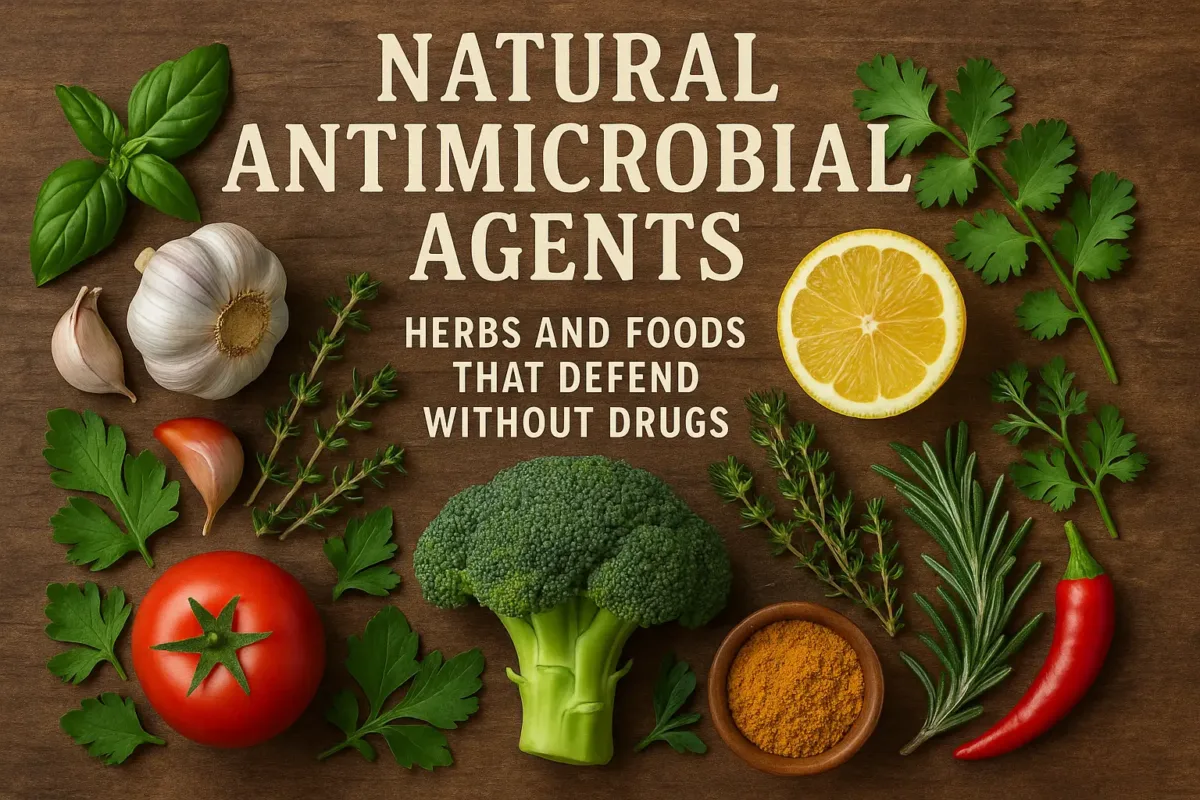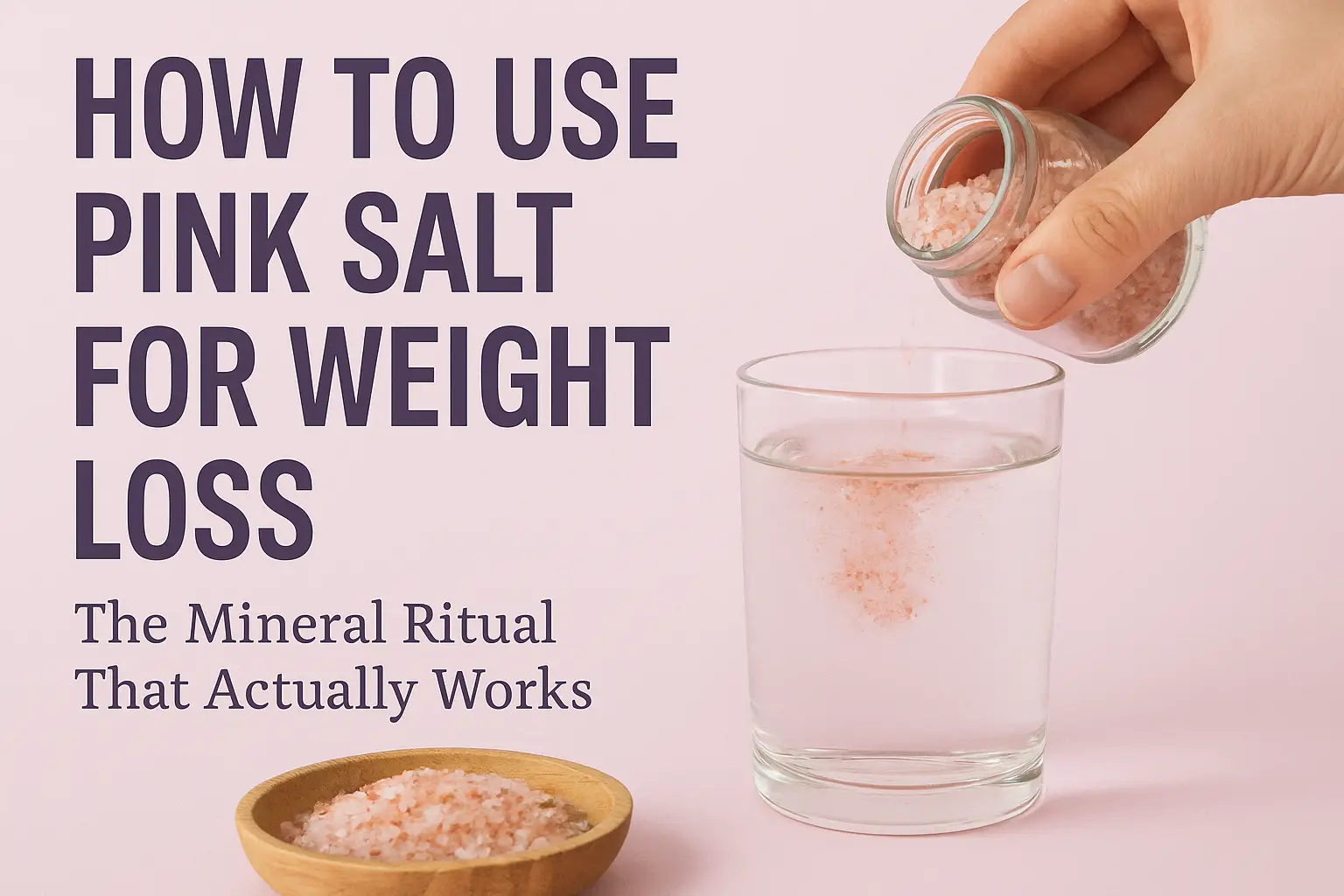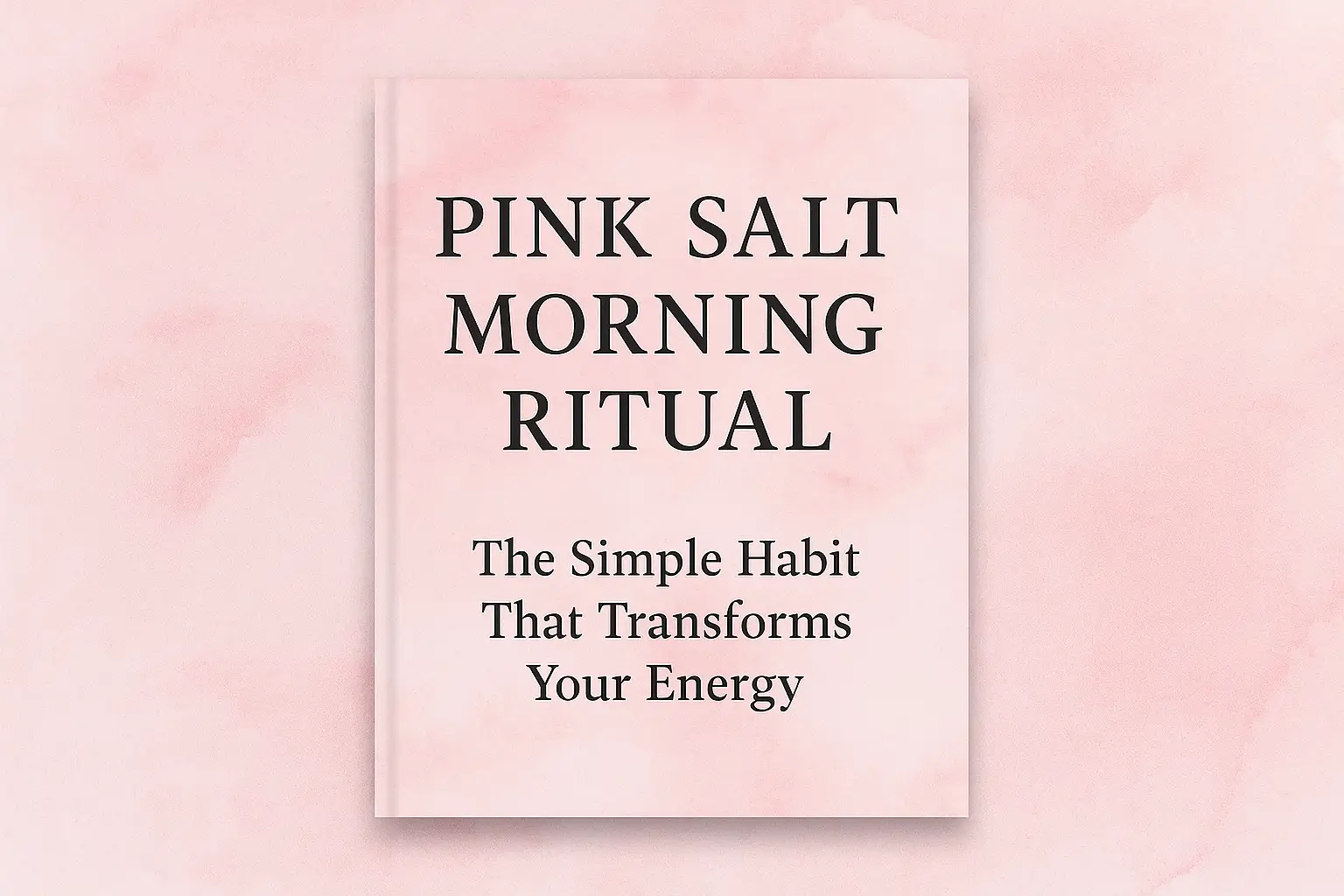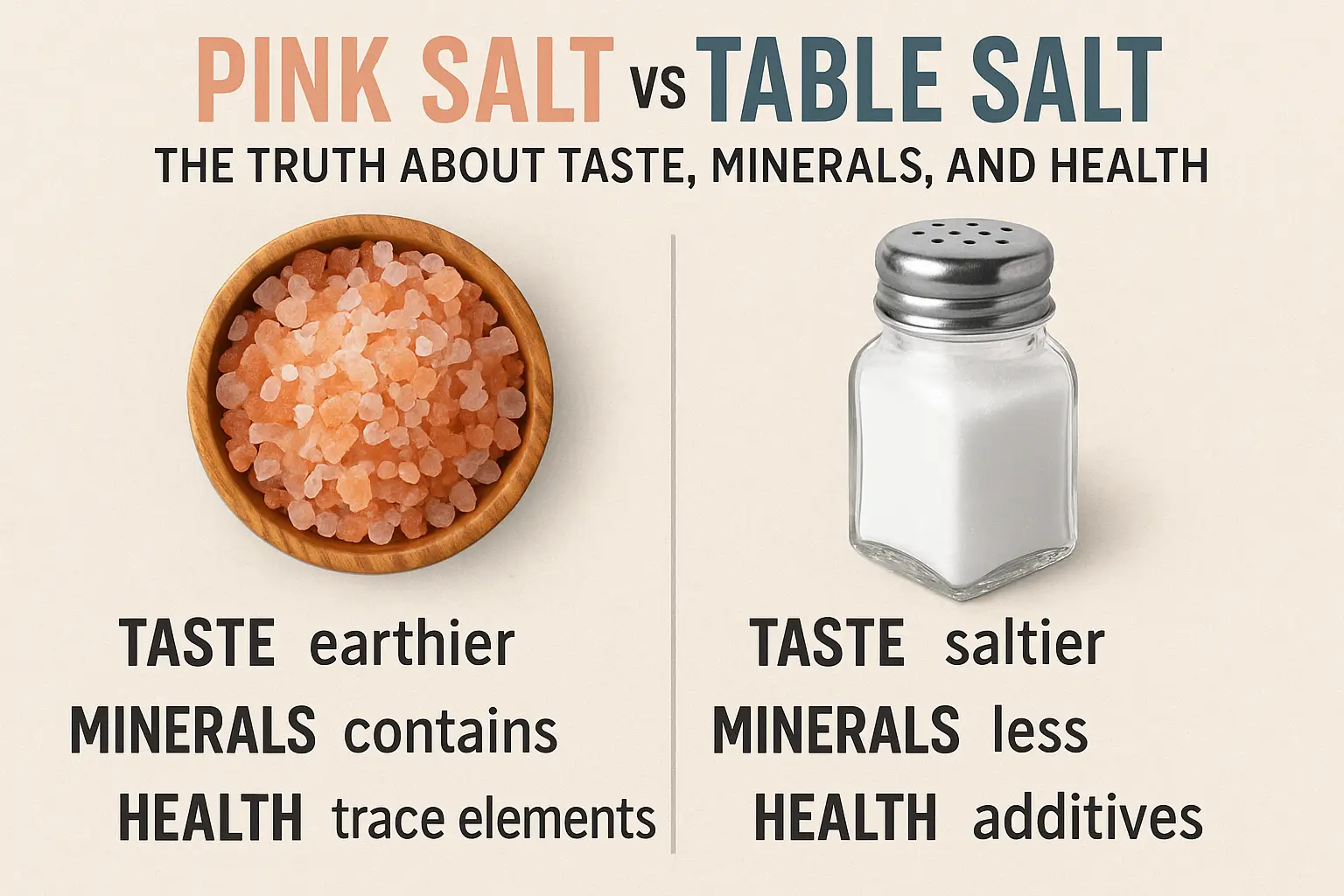Natural antimicrobial agents are nature’s quiet defense system—compounds found in plants and foods that protect life from infection. When you bite into a clove of garlic, sip ginger tea, or sprinkle turmeric on rice, you’re activating chemistry as old as evolution itself. These natural defenses don’t just preserve the plant; they can help preserve us, too.
- Understanding How Natural Antimicrobials Work
- 1. Garlic: The Timeless Natural Antibiotic
- 2. Ginger: The Warming Defender
- 3. Turmeric: Golden Anti-Inflammatory Power
- 4. Clove and Cinnamon: Nature’s Dual Guardians
- 5. Thyme and Oregano: The Mediterranean Shield
- 6. Manuka Honey and Raw Honey
- 7. Coconut Oil: Antimicrobial from the Tropics
- 8. Herbal Teas and Infusions
- 9. The Mind-Body Connection in Immunity
- How to Integrate Natural Antimicrobials into Everyday Life
- Safety and Synergy
- FAQs
Understanding How Natural Antimicrobials Work
Every plant is an ecosystem. To survive insects, fungi, and microbes, plants produce protective phytochemicals—flavonoids, terpenes, and phenolics. When we consume these compounds, their defensive benefits often carry over. Some disrupt bacterial cell membranes; others block viral replication or inhibit fungal growth. Rather than killing indiscriminately, natural agents help rebalance microbial communities.

This gentler approach is why herbal antimicrobials rarely cause resistance. They nudge, rather than obliterate, maintaining harmony between body and microbiome.
1. Garlic: The Timeless Natural Antibiotic
Garlic’s allicin remains one of the most studied natural antimicrobial compounds. It interferes with bacterial enzyme systems and combats fungi such as Candida albicans. Regular garlic consumption supports immunity and cardiovascular health. Crush cloves before eating to activate allicin, and enjoy raw in dressings or lightly warmed in soups.
2. Ginger: The Warming Defender
Ginger’s active compounds, gingerols and shogaols, exhibit both antibacterial and antiviral effects. Studies show ginger may inhibit respiratory viruses and digestive pathogens. Beyond chemistry, its warming nature stimulates circulation and detox pathways, helping the immune system reach peripheral tissues faster.
3. Turmeric: Golden Anti-Inflammatory Power
Turmeric’s bright pigment curcumin is both antimicrobial and antioxidant. It modulates inflammatory signals while directly reducing bacterial load. Combined with black pepper (which boosts absorption), turmeric becomes a multipurpose tonic—supporting liver health, reducing chronic inflammation, and defending against microbes simultaneously.
4. Clove and Cinnamon: Nature’s Dual Guardians
Clove oil’s eugenol and cinnamon’s cinnamaldehyde are potent antifungal and antibacterial molecules. Together they preserve food, clean oral bacteria, and stimulate digestion. Adding these spices to teas or baked goods offers not just aroma but subtle infection control. A clove-cinnamon tea after meals aids both gut health and immune resilience.
5. Thyme and Oregano: The Mediterranean Shield
These aromatic herbs contain thymol and carvacrol—two phenolic compounds with strong antimicrobial action. They break down bacterial membranes and inhibit growth of pathogens like Streptococcus and Salmonella. Oregano oil, in particular, is used as a concentrated natural disinfectant (diluted, of course). Culinary use still brings measurable health protection.
6. Manuka Honey and Raw Honey
Honey acts as an osmotic agent, drawing moisture from bacterial cells and creating an environment too acidic for growth. Manuka honey’s methylglyoxal content gives it special strength, but all raw honeys offer enzymes that release hydrogen peroxide slowly, keeping wounds clean and soothing sore throats. A teaspoon daily or in warm tea supports immunity with sweetness and science.
7. Coconut Oil: Antimicrobial from the Tropics
Coconut oil’s lauric acid converts into monolaurin in the body—a compound that disrupts lipid-coated bacteria and viruses. It’s particularly effective against staphylococcal infections and yeast overgrowth. Use virgin coconut oil for cooking or oil pulling to support oral health naturally.
8. Herbal Teas and Infusions
Chamomile, peppermint, lemongrass, and licorice root teas offer mild antimicrobial benefits while hydrating tissues. Their volatile oils calm inflammation, while warm liquids flush out toxins and mucus. Drinking herbal infusions daily is preventive medicine disguised as comfort.
9. The Mind-Body Connection in Immunity
Modern immunology confirms what herbalists have long observed: chronic stress suppresses immune response. Plants rich in adaptogens—like tulsi (holy basil), ashwagandha, and reishi mushroom—don’t act directly as antimicrobials but regulate stress hormones, giving your body more capacity to fight infection.
In this way, emotional balance is itself an antimicrobial force.
How to Integrate Natural Antimicrobials into Everyday Life
- Add garlic and ginger to daily meals—raw when possible.
- Drink turmeric or ginger tea in the morning for gentle detoxification.
- Use clove, cinnamon, and honey to replace refined sugars in desserts.
- Diffuse thyme or eucalyptus essential oils for cleaner indoor air.
- Rotate herbs seasonally—your body thrives on diversity.
Healing isn’t about taking one herb in crisis; it’s about cultivating microbial harmony through consistent nourishment.
Safety and Synergy
Natural doesn’t mean harmless. Some herbs interact with medications or are unsuitable during pregnancy. Always research dosages, use food-level quantities first, and consult professionals when combining multiple strong extracts. Balance ensures potency without harm.
Synergy is where real magic lies: garlic with honey, turmeric with black pepper, oregano with thyme—these pairs amplify benefits through natural chemistry cooperation.
FAQs
What are natural antimicrobial agents?
They’re compounds in herbs and foods that inhibit bacteria, fungi, or viruses—examples include allicin in garlic and curcumin in turmeric.
Can they replace antibiotics?
No, but they can prevent infection and complement mild cases under guidance.
Which herbs are strongest?
Garlic, oregano, thyme, clove, and turmeric are among the most researched and effective.
Can I take multiple herbs together?
Yes, combining in small culinary amounts enhances synergy and diversity of defense.
How often should I use them?
Daily use in food is safest and most effective long-term.
Do these herbs affect gut bacteria?
They help balance gut flora rather than sterilize it, supporting overall microbiome health.
Are there side effects?
Large doses may cause stomach upset; essential oils must be diluted to avoid irritation.
Can stress reduce antimicrobial effectiveness?
Yes—stress hormones suppress immune function, making mindfulness and rest vital parts of defense.
In nature’s design, every flavor carries purpose. By embracing herbs and spices not just as taste but as protection, we remember that the line between food and medicine was never meant to exist.
If this spoke to you, you’ll love the full information in this book; begin your deeper reading → See the book on Mayobook.










